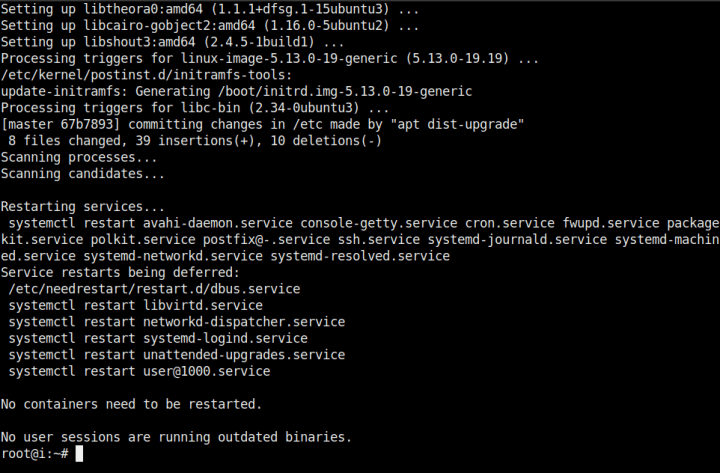Tytus Kurek
on 14 October 2021
Ubuntu Server 21.10 (Impish Indri) expands on edge use cases with a minimised system installation option in the Ubuntu Server Live Installer. It also comes with needrestart enabled by default for automated daemon restarts after applying library updates. In addition, the latest development cycle brings native, certified drivers for NVIDIA vGPU software on Ubuntu 20.04 LTS and 18.04 LTS, fully supporting sophisticated AI/ML workloads.
Ubuntu Server 21.10 will be supported by Canonical until July 2022. All new features will be available in the upcoming Ubuntu Server 22.04 LTS release.

NVIDIA vGPU software drivers
In the world of a constantly growing volume of data, the usage of AI/ML technologies is becoming more and more common. While traditional processors are fully sufficient to get started, running sophisticated workloads in production usually requires using dedicated GPU devices for better performance thanks to their parallel processing architecture.
When running such workloads in a private cloud environment, sharing physical resources, such as GPUs, becomes essential. The NVIDIA vGPU software allows for virtualisation of NVIDIA GPU devices, enabling sharing resources between guest VMs and benefitting from improved efficiency.
In response to growing demands for AI/ML workloads, the latest development cycle brings certified drivers for NVIDIA vGPU software 13.1 on Ubuntu KVM. Both host and guest drivers are now available on Ubuntu 20.04 LTS and 18.04 LTS as Debian packages, jointly tested and validated by Canonical and NVIDIA.
Get in touch for more information >
Minimised system installation option
The growing adoption of edge and IoT technologies has entailed efforts around operating system tinification. Using devices with limited hardware resources enforces smooth provisioning and a small runtime footprint.
While Ubuntu is a lightweight Linux distribution out of the box and already ships with minimal cloud images, in some cases users need to install a minimised version of Ubuntu manually. The legacy Debian Installer, deprecated starting from Ubuntu 20.10, used to provide such an option.
Based on the feedback from the community as well as commercial interest, Canonical decided to re-introduce this feature in the Ubuntu Server Live Installer. Impish Indri users can now choose to proceed with the minimised version on Ubuntu at the installation time which uses less than 100 MB of the disk space.

Needrestart by default
Applying security updates on a regular basis is key to achieving the highest possible level of security. However, upgrading the libraries themselves may not be sufficient as some applications may still use the vulnerable code. Those have to be restarted to make sure they pick up CVE-patched versions of libraries. This is something that the needrestart package solves.
Needrestart checks which daemons need to be restarted after library upgrades and can be further configured to enable automated restarts. The package has been available in the Ubuntu archive for a while, but in response to increasing demands for even more hardened systems on the edge, starting from Ubuntu 21.10 it comes installed by default.

Other notable changes in Ubuntu Server 21.10
In addition to the major new features described above, Ubuntu Server 21.10 includes many other improvements. Here is a summary of the most notable changes:
- The latest stable Linux 5.13 kernel for the latest hardware and security updates.
- Support for all major architectures: x64-64, ARM v7, ARM64, POWER 8, POWER 9, IBM s390x (LinuxONE) and RISC-V.
- Updates to various applications: QEMU (6.0), libvirt (7.6), PHP (8.0.8), Apache2 (2.4.48), GCC (11.2.0), Python (3.9.4), Bind9 (9.16.15), Open vSwitch (2.16.0) and OpenLDAP (2.5.6).
For more information, refer to the official release notes.
Next steps
Get Ubuntu Server 21.10 through your favourite option. Those include:



